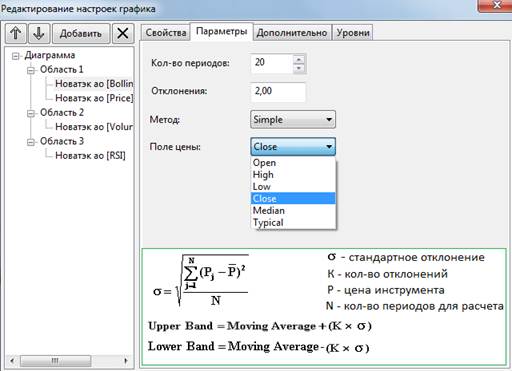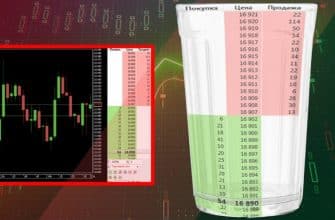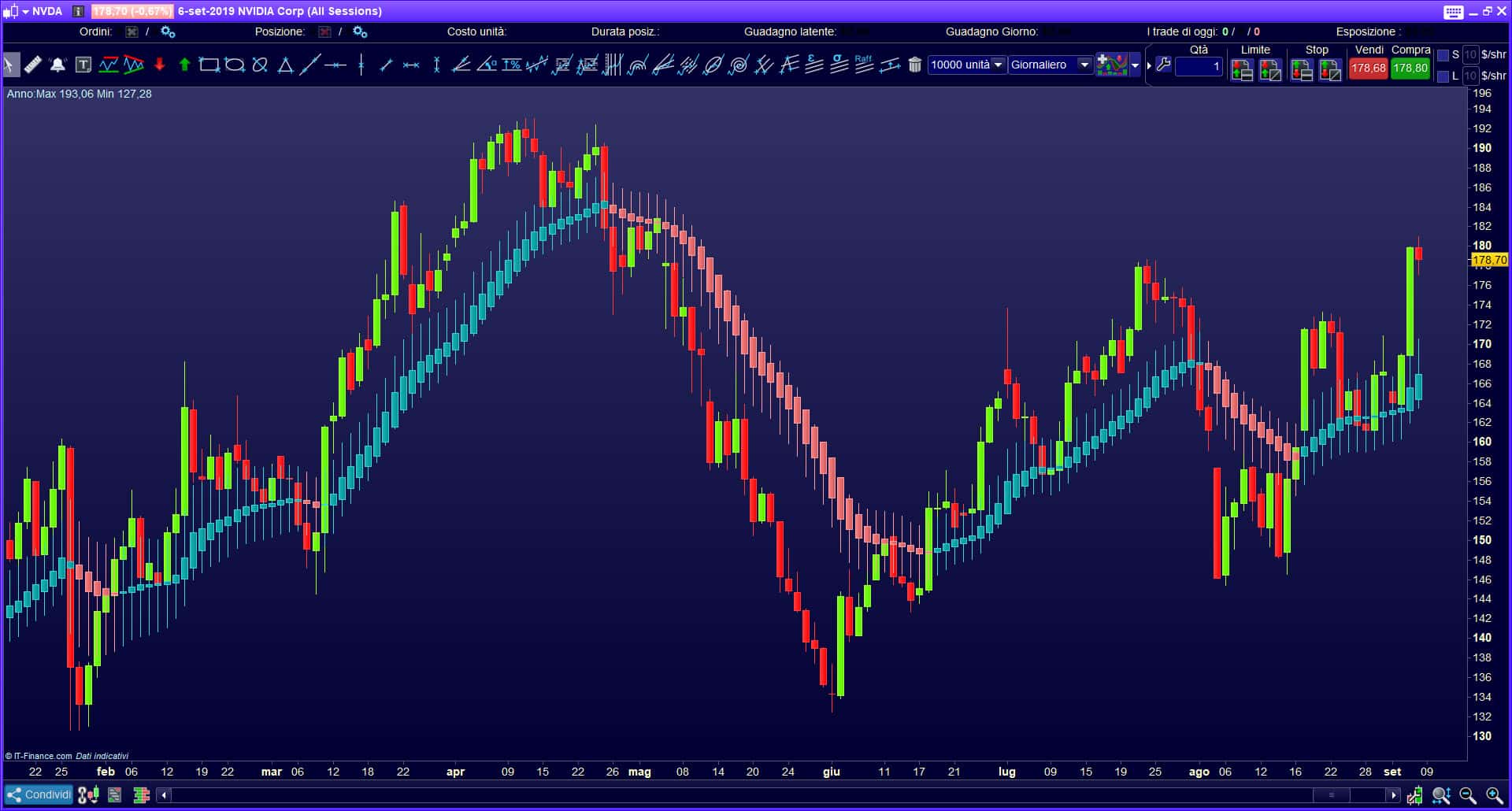Bollinger Bands (sometimes Bollinger Bands) – what is it and how is the Bollinger Bands indicator used? In order to more accurately assess the likelihood of a particular option for changing prices in the future,
methods of fundamental and technical analysis are used . In the first case, the situation is analyzed taking into account the impact of economic factors. At the same time, it is not always possible to predict exactly how they will affect the value of specific shares. It often happens that important events affect prices too quickly and the trader does not have time to take advantage of it. Bollinger Bands indicator:
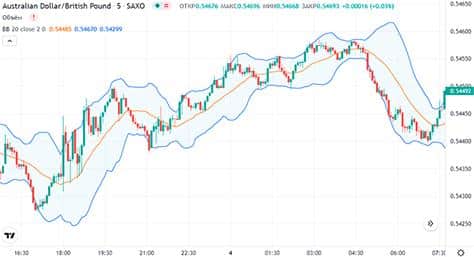
- The central represents the average value of the price. It shows the trend of movement and allows you to build an assumption about the general nature of the changes.
- The upper and lower lines characterize the degree of deviation from the central line. The difference between them is the greater, the sharper the changes in quotations occur.
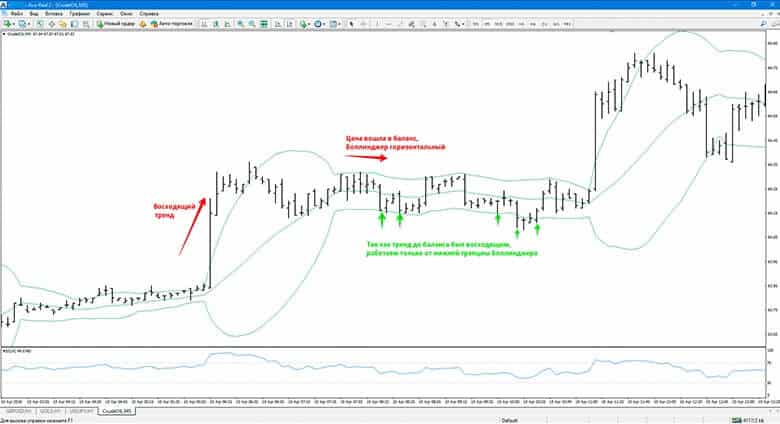
Philosophy and history of the indicator
This indicator was created by John Bollinger in the 1980s, a Wall Street trader and analyst. Already during the first decade after its creation, the indicator gained wide popularity, which persists decades later. It allows you to understand how prices are distributed relative to the average value of an asset. In the presence of high volatility, the distance between the lower and upper lines increases. John Bollinger wrote the book “Bollinger on the Bollinger Band” which details the application rules. 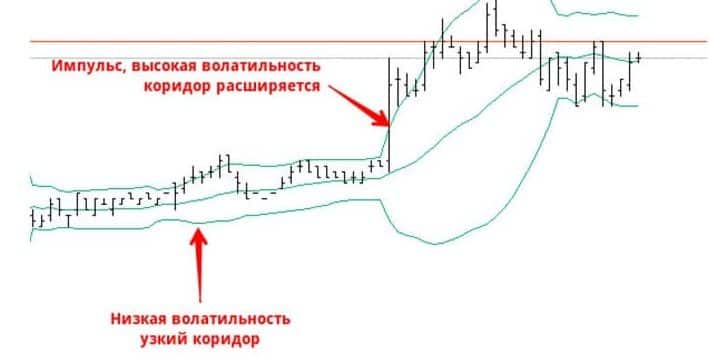
How bollinger bands are used
The use of the indicator under consideration is usually associated with determining a promising direction for making a deal. For successful work on the exchange, a trader must determine which trading system he will use. To do this, it is necessary to accurately understand what actions need to be taken in each possible situation. Usually, when creating such a system, several standard elements are used. One of them is as follows. First you need to determine if the market is trending. It may tend to rise, fall or fluctuate in a horizontal corridor. In the first and second cases, it can be argued that it is trendy. If quotes grow, then it is profitable to buy an asset, and if they fall, then sell. Trend indicators provide an answer to the question of which of these situations takes place. Bollinger bands can perform this function in the trading system. Useful functions of QUIK – indicators RSI, MACD, Bollinger Bands: https://youtu.be/jMjVqSxQdxU The indicator can also be used to define sell or buy targets. Its lines show where you can take profits. Similarly, using Bollinger Bands, you can determine the stop level in your trades. Narrowing or widening of the band indicates the level of volatility and trendiness of the market. A narrow sloping band indicates a greater strength of movement. If it expands, then some traders see it as a sign that the trend is about to stop. If the indicator narrows strongly during a sideways trend, then this indicates a high probability of an explosive movement. be/jMjVqSxQdxU The indicator can also be used to determine the purpose of selling or buying. Its lines show where you can take profits. Similarly, using Bollinger Bands, you can determine the stop level in your trades. Narrowing or widening of the band indicates the level of volatility and trendiness of the market. A narrow sloping band indicates a greater strength of movement. If it expands, then some traders see it as a sign that the trend is about to stop. If the indicator narrows strongly during a sideways trend, then this indicates a high probability of an explosive movement. be/jMjVqSxQdxU The indicator can also be used to determine the purpose of selling or buying. Its lines show where you can take profits. Similarly, using Bollinger Bands, you can determine the stop level in your trades. Narrowing or widening of the band indicates the level of volatility and trendiness of the market. A narrow sloping band indicates a greater strength of movement. If it expands, then some traders see it as a sign that the trend is about to stop. If the indicator narrows strongly during a sideways trend, then this indicates a high probability of an explosive movement. Narrowing or widening of the band indicates the level of volatility and trendiness of the market. A narrow sloping band indicates a greater strength of movement. If it expands, then some traders see it as a sign that the trend is about to stop. If the indicator narrows strongly during a sideways trend, then this indicates a high probability of an explosive movement. Narrowing or widening of the band indicates the level of volatility and trendiness of the market. A narrow sloping band indicates a greater strength of movement. If it expands, then some traders see it as a sign that the trend is about to stop. If the indicator narrows strongly during a sideways trend, then this indicates a high probability of an explosive movement.
Pros and cons
The use of the considered indicator creates a detailed picture of the price movement. Understanding the principles of its work allows you to draw the necessary conclusions when making a decision on a deal. An example of using the Bollinger Band indicator:
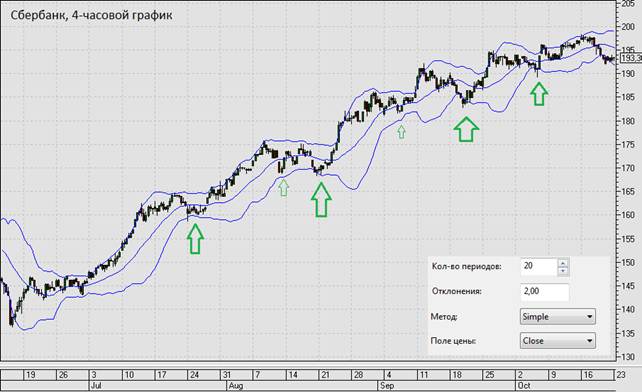
- You can determine if the market is trending and indicate its direction.
- There is information about the level of price volatility.
- It is possible to determine whether an asset is overbought or oversold.
- Together with other indicators, it can be used to find the moment to enter or exit a trade.
When using it, it is necessary to take into account the presence of such shortcomings:
- Although Bollinger Bands is a very informative indicator, it does not provide any guarantee of absolute prediction accuracy . It is impossible to exclude the influence of random circumstances that may adversely affect the profitability of trading.
- Since the average value is used, taking into account the last 20 bars, this indicator has a delay . This is a common property of those indicators that are based on the use of an average calculation.
- It should be borne in mind that when the price approaches the boundary line, it is possible not only to reflect it, but also to expand the band . Similarly, other signals can create uncertainty in the future.
The use of Bollinger Bands gives more reliable signals when used in conjunction with other indicators. As additional, it is more profitable to use those in the construction of which other principles of calculation are used.
Building
The charting rules are as follows:
- First you need to calculate the moving average. Usually, to get it, the arithmetic average of the Close values for the last 20 bars is used. The developer used a simple average to calculate, according to him, in order to apply the same method to plot the center line and obtain deviations.
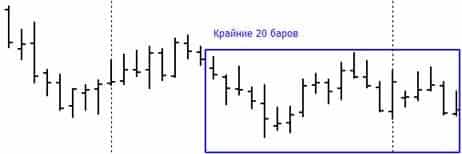
- The standard deviation is calculated. Two such values are plotted up and down from the mean line. The deviation is greater, the stronger the volatility. When it decreases, the distance between the upper and lower lines decreases.


Bollinger Band Strategies – Practical Application in Analysis
The use of the indicator is based on its high information content. In combination with other indicators, Bollinger Bands allow you to determine not only the direction of the transaction, but also the moment to enter it. The following are some examples that illustrate the specifics of the application.
Rebound from the borders
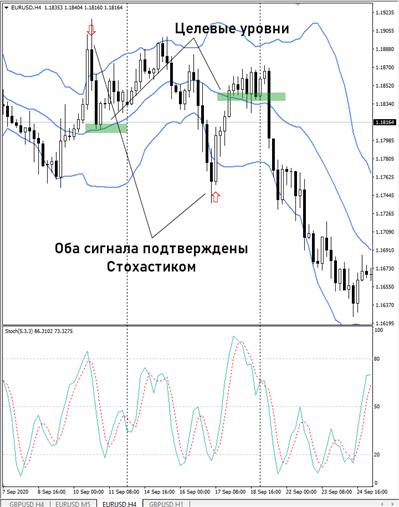
Achievement of the target level
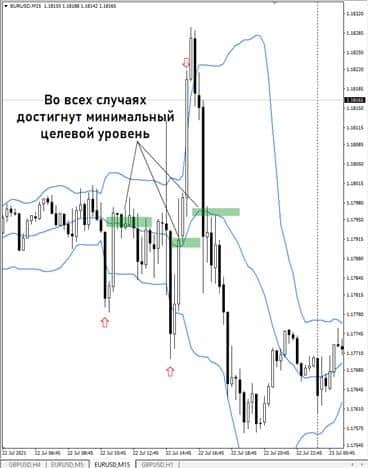
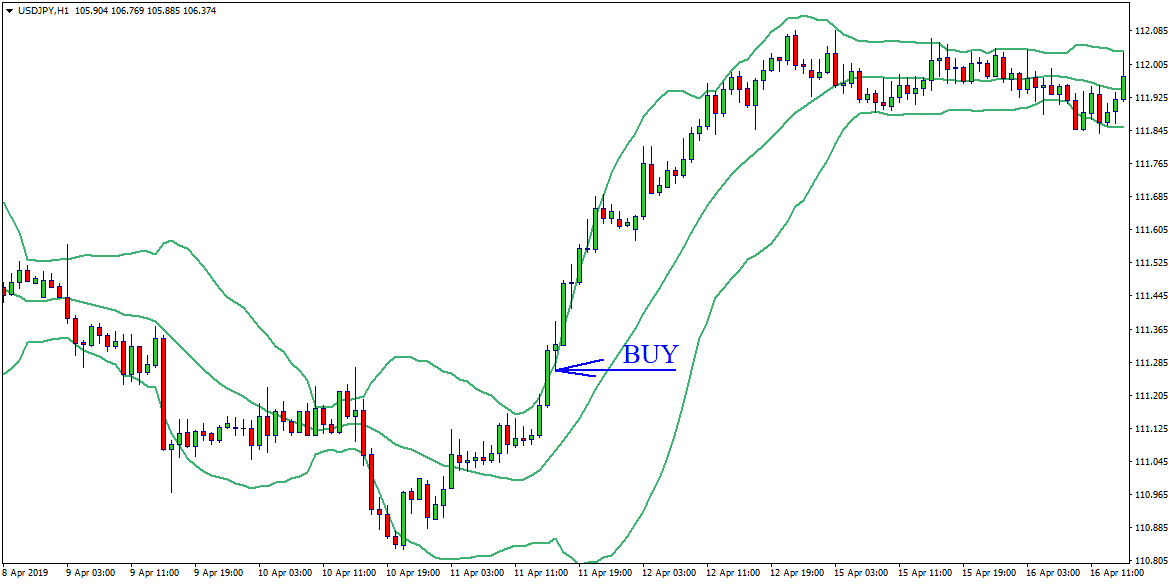
Sloping support or resistance lines
On the chart shown here, the red arrows show 4 bounces from the midline during a down trend move. These cases are advantageous moments for entering into a sell trade. You can see that in this chart, the first three trades would be successful if they were closed after crossing the lower line. The latter, due to a change in the direction of the trend to an upward one, will not lead to an early intersection with the lower line. To limit losses in the latter case, it is enough to put a stop on the central line of the Bollinger indicator.
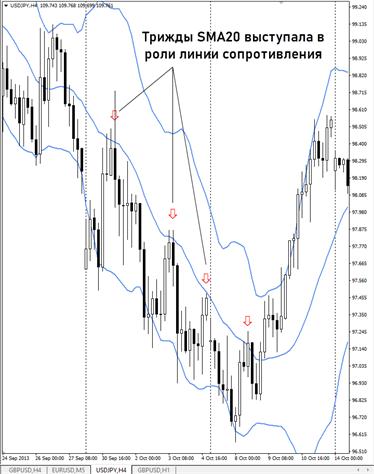
Horizontal support or resistance lines
If the indicator is used in a trending market, it can repeatedly touch the outer line and go back. Each such rebound can be considered as a resistance line in a growing market. When quotes pass it during further movement, this indicates the strength of the movement and allows you to use this moment to enter a deal or increase it. Immediately after each resistance line, you can put a stop, providing almost breakeven further development of the transaction. Considering the chart given as an example, it is clear that such a stop will work only after the last of these lines has been overcome. In order to more accurately determine all the necessary parameters of the transaction in this and other examples, it is advantageous to use additional signals received by the indicators. The trader should determine which of them are needed by determining
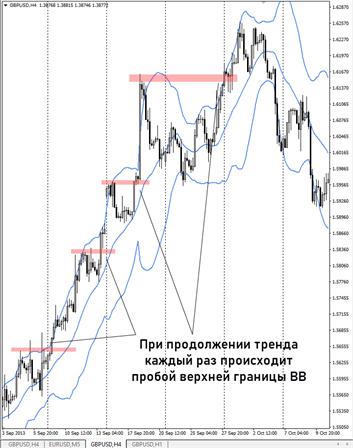
Use on terminals
Bollinger Bands have long been considered a classic tool for technical analysis. Therefore, in most cases, they are among the pre-installed technical analysis tools. Indicator calculation procedure:
